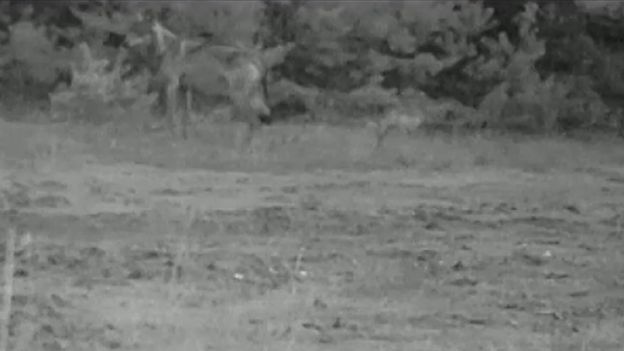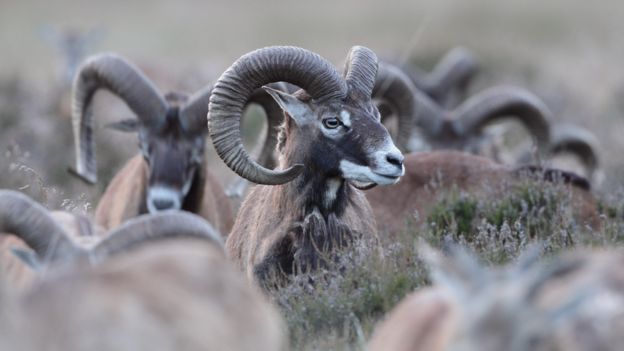By News from Elsewhere…
…as found by BBC Monitoring
Male and female wolves have been spotted in a national park in the Netherlands, raising hopes – and fears – of a settled wolf population for the first time since the 19th century.
Research by ecologist Hugh Jansman confirmed the presence of at least one female in De Hoge Veluwe park in the east of the country, as well as the strong likelihood of a male, according to the NPO 1 public broadcaster.
The first wolf in over a century arrived from Eastern Europe via Germany in 2015, and numbers have increased at a pace.
Four were reported between November 2018 and January 2019, before Gelderland Province commissioned Mr Jansman of Wageningen University to estimate wolf numbers using footprints, droppings and deer carcasses.
This prompted the province to designate habitats for wolves near the park in mid-March, as there is evidence that the protected animals have been living there for at least six months, the NU.nl online newspaper reported.
Mr Jansman believes wolves could help the ecological balance, on the grounds that a lack of natural predators has led to wildlife overpopulation.
“We have been shooting 50% of the deer and 80% of the boars, just in order to maintain an acceptable level. I think the wolves could do a lot of good,” he told the broadcaster’s EénVandaag news programme.
‘Wolf plan’
Provincial official Peter Drenth is more cautious, and says the authorities have drawn up a “Wolf Plan” to try to manage the impact of the new arrivals on the farming communities of Gelderland.
“We estimate a wolf needs around 20,000 hectares (50,000 acres) of habitat, so in theory there is room for five wolves on the Veluwe,” he told NPO 1.

But local farmers, holiday firms and politicians are apprehensive.
Provincial Councillor Jeroen Piksen has even called for the authorities to have the right to shoot the wolves in “extreme cases“.
Others suggest a middle way, taking on board the experience of Germany in dealing with the reappearance of wolves in inhabited areas.
Leo Linnartz, a veteran wolf-watcher and campaigner for the re-establishment of wild species, says the authorities should invest in electric fences and guard dogs to protect livestock.
“Germany shows that wolves can be taught that catching sheep is not worth the effort,” he told the broadcaster.
‘Not the Serengeti’
But the director of De Hoge Veluwe dismisses the idea that wolves can be weaned off killing livestock.
“Once a wolf has tasted sheep meat it won’t be running after deer. Grazing sheep will be impossible if wolves are in the area, and fences won’t keep them out… We live in a country of 17 million people, not the Serengeti”, Seger Emmanuel baron van Voorst tot Voorst told the Gelderlander newspaper, referring to the vast grazing plains of east Africa.
He told EénVandaag that De Hoge Veluwe itself is “working hard on a daily basis to maintain the unique ecological balance of the park… and letting wolves in would have serious consequences”.

The park has set out its objections in detail, noting that the Dutch wolves are already bold enough to take to footpaths rather than remain in the woods.
‘The wolf is already there’
In particular, De Hoge Veluwe fears for its rare population of wild mouflon sheep, with their striking curled horns.
“It has already been shown that wherever the wolf appears, the mouflon disappears,” it warns.
Leo Linnartz nonetheless thinks it’s too late to talk about keeping the park free of wolves.
“The wolf is already there, and we would do better to discuss how we can live together with the wolf,” he told Een Vandaag.

Reporting by Martin Morgan
